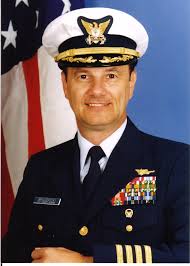记忆方法
将“captain”与“captivate”结合记忆,想象一个队长(captain)在队伍中极具魅力(captivate),能够吸引和领导大家,通过“captivate”中的“cap”联想到队长一词的首字母“cap”。
以上内容由AI生成, 仅供参考和借鉴
中文词源
captain 队长
来自词根cap, 头, 词源同chief, cape.
英语词源
- captain
-
captain: [14] Etymologically, a captain is someone who is at the ‘head’ of an organization, team, etc. It derives ultimately from late Latin capitāneus ‘chief’, a derivative of caput ‘head’, which came to English via Old French capitain. A parallel but earlier formation was chieftain, which also came from late Latin capitāneus, but along a different route, by way of Old French chevetaine.
=> chieftain - captain (n.)
- late 14c., capitayn, "a leader, chief, one who stands at the head of others," from Old French capitaine "captain, leader," from Late Latin capitaneus "chief," noun use of adjective capitaneus "prominent, chief," from Latin caput (genitive capitis) "head" (see capitulum).
Military sense of "officer who commands a company" (rank between major and lieutenant) is from 1560s; naval sense of "officer who commands a man-of-war" is from 1550s, extended to "master or commander of a vessel of any kind" by 1704. Sporting sense is first recorded 1823. - captain (v.)
- 1590s, from captain (n.). Related: Captained; captaining.
权威例句
- 1. "Ah, Captain Fox," Martin McGuinness said affably. "Nice to see you again."
- “啊,福克斯上尉,”马丁·麦吉尼斯亲切地说,“很高兴再次见到您。”
- 2. Captain Cook safely navigated his ship without accident for 100 voyages.
- 库克船长驾驶的船安全出航100次无事故。
- 3. Captain David Clement and 150 commandos stormed the port this morning.
- 戴维·克莱门特上尉和150名突击队员今天早上对港口展开突袭。
- 4. The captain radioed that the ship was on fire.
- 船长发无线电说船着火了。
- 5. The Captain was at the other end of the room.
- 船长在房间的另一头。

